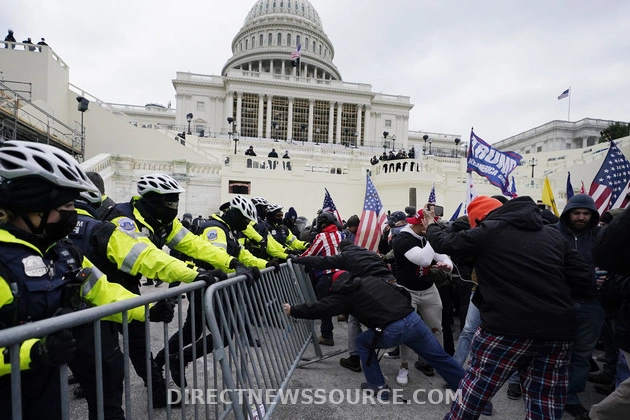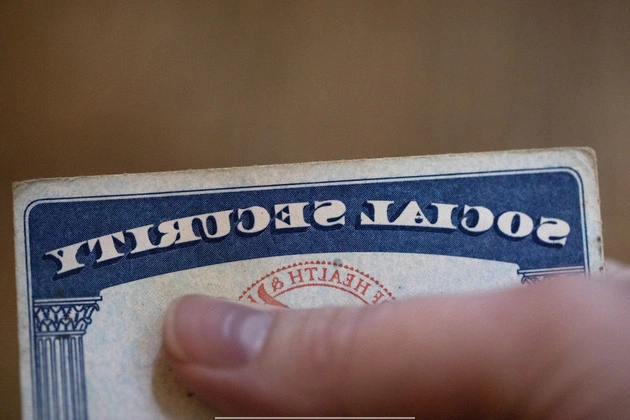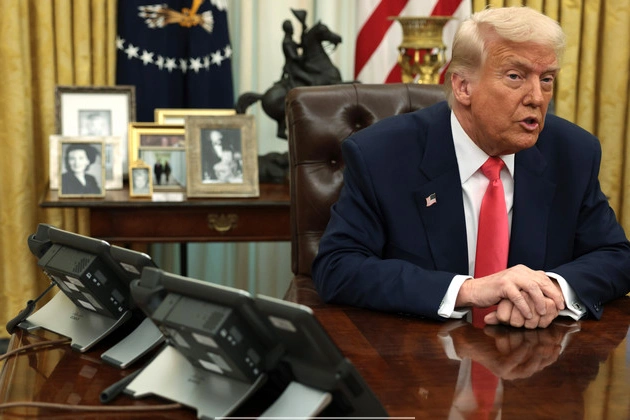
Ensuring a Peaceful Transfer of Power: A Look at the Jan. 6 Events and Their Aftermath
The Peaceful Transfer of Power
The transfer of power to Donald Trump is shaping up to be, well, peaceful.
No mobs are assembling to disrupt Congress’ Jan. 6 counting of electoral votes. No Democratic leaders are questioning the results of the election or concocting elaborate legal theories to thwart the outcome. The greatest risk of obstruction seems likely to come from a storm system threatening to dump a few inches of snow on the region overnight.
If all goes as expected, by late Monday afternoon, Trump’s victory will be certified in a ceremony overseen by his vanquished rival, Vice President Kamala Harris, who will preside over the proceedings in her capacity as the president of the Senate. Harris has been clear she will administer a straightforward transfer of power. In doing so, she’ll follow in the footsteps of all vice presidents before her — including Mike Pence, who resisted Trump’s pressure to refuse to count electors from states Trump lost in 2020.
The Jan. 6 Contrast
It’s the utter antithesis of the carnage unleashed four years ago, under clear blue skies, by thousands of Trump supporters, goaded by lies about a stolen election. Hundreds of them bludgeoned police officers guarding the Capitol as the mob fought to stop Congress from counting the electoral votes that would make Joe Biden president.
The attack spawned the largest-ever federal criminal probe, led to a grave criminal case against Trump, spawned a failed legal effort to remove him from the ballot and defined the political climate of the last two election cycles. Democrats declared Trump a threat to democracy and the president-elect wielded the cases to rally his base and claim political persecution.
Current Atmosphere and Legal Proceedings
Monday’s joint session is also the first governed by a 2022 law designed to prevent efforts to corrupt the transfer of power and limit the ability of lawmakers to mount challenges to the results. That law lowers the already slim odds of any objections that could hamper the proceedings.
Still, the general atmosphere of calm in Washington belies a deep, simmering tension between those who watched the nation’s democratic institutions buckle on Jan. 6, 2021, and those who hope to whitewash it — especially as Trump attempts to rewrite the history of the attack on the Capitol and prepares to pardon many of its perpetrators. The Justice Department has charged more than 1,500 people for their involvement in the attack, and more than 1,200 have pleaded guilty or been convicted.
Judges in the federal district court in Washington are marking the four-year anniversary of the attack by advancing more cases to trial and sentencing, leaning into their work despite rising pressure to pause cases to await Trump’s clemency decisions.
Looking Ahead
Republican leaders in Congress have no plans to mark the anniversary of the attack, and House leaders have spent recent days instead vowing to investigate the Jan. 6 select committee that probed Trump’s role in the attack two years ago. Speaker Mike Johnson and top lieutenants lashed out when Biden awarded the panel’s leaders — Rep. Bennie Thompson (D-Miss.) and former GOP representative Liz Cheney — with prestigious Presidential Citizens medals. Trump, too, used the occasion to attack Cheney, a longtime political nemesis, and float her potential prosecution.
Amid it all are the Capitol Police, D.C. cops and Secret Service agents preparing to protect the Capitol on Monday and at Trump’s inauguration two weeks later. Hundreds of them were at the Capitol four years earlier facing down the mob, wondering if they would get to go home that night.
Dozens have testified in trials of the Jan. 6 defendants who once opposed them, describing under oath the chaos and fear they experienced — and often still live with.















